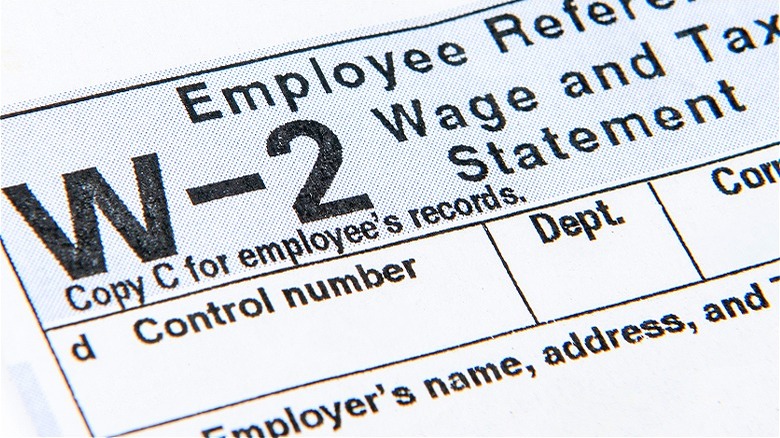Are Remote Workers Taxed Differently?
One of the lasting ways 2020's COVID-19 pandemic shifted our work habits is a prolonged trend toward work-from-home, also known as remote work. A good chunk of workers who were sent home from the office during the lockdowns of March 2020 opted to make that change a permanent one.
According to a recent survey from Pew Research Center, approximately 35% of workers who are able to work from home are choosing to do so full time. Granted, that's down from an October 2020 peak when 55% of eligible remote workers took advantage. Still, the current level of 35% opting to work from home is much higher than the pre-pandemic level of just 7%.
Perhaps you're considering joining the ranks of the remote workers? If so, a recurring question is whether remote workers pay income taxes differently from their on-site counterparts? The answer is, it depends. First and foremost, you have to determine if you're an actual employee of the company or a self-employed independent contractor. Sometimes, the line between the two can be blurry.
W-2 employees see no difference in federal income tax
Let's start with W-2 employees. The payroll and compliance company Deel defines W-2 workers as, "... a person in a formal employment relationship with a U.S. company or organization, who annually receives a W-2 tax document that outlines their earnings and the taxes deducted by the employer for tax return purposes."
In the case of W-2 employees, there's no difference in federal income tax obligations between someone who does their job from home versus at the office. This, in spite of the fact that the in-person worker may have transportation costs, like a commute in a personal vehicle or via paid public transit. Likewise, the remote worker may have a portion of their home converted to a workspace. Neither gets compensated for federal income tax purposes. Assuming all other factors are the same, such as salary, number of dependents, and deductions (check out whether you should itemize deductions), both employees will pay the same amount of federal income tax.
Where the situation for remote W-2 employees potentially gets more complicated is if they're working from a different state than where their company is based. Backtracking for a minute, if an employee is working remotely in the same state where their company is located, then state income taxes will be levied identically between work-from-home and in-person employees. Assuming that the state charges income tax to begin with (seven states do not). But what happens if a remote employee uses the opportunity to relocate to a different state than their employer?
It's complicated if you move to a different state
The possibility exists that a newly remote employee may opt to relocate to a different state than their employer. In that scenario, how is state income tax handled? Unfortunately, there is no simple answer as to how state income taxes will be treated because every state has its own set of rules. For example, a remote employee of a California company who lives in Washington isn't required to pay California income tax, but that's just one instance of many different combinations.
In some cases, a reciprocity agreement between states excuses remote workers from paying state-level income taxes in their company's state if they reside in a different state. Yet, not all states have such agreements. Additionally, there's also a "convenience of the employer" rule that can either mean the remote worker is subject to double taxation (their state and the state of their employer) or they're exempt from the rule if they're working out of state for the benefit and preference of the company, not for the remote worker's personal convenience. Further, this rule only applies to five states: Connecticut, Delaware, Nebraska, New York, and Pennsylvania.
If this entire situation seems complicated, it is. We suggest it could be worth it to consult with a tax professional or at least research the appropriate laws of the states involved prior to calling a moving truck (by the way, is it worth it to hire movers?). A good place to begin is a list of state government websites, which the IRS helpfully provides.
Self-employed remote workers have a different rulebook
Next, what about self-employed work-from-home types (aka, a 1099 employee) that are actually independent contractors. Like freelance writers, for example? The situation for 1099 employees — so named for the 1099-MISC tax form that's used to declare earnings to the IRS — is somewhat simpler than for W-2 employees. At least from the perspective of state income taxes, that is. Independent contractors pay state income tax, if applicable, in their home state.
As for taxes at the federal level, 1099 employees will pay more taxes than their W-2 counterparts. That's because 1099 employees are responsible for making the entire contribution toward Social Security and Medicare. That's equal to 12.4% for Social Security (up to a maximum of $168,600 in earnings for 2024) and 2.9% for Medicare. That's 15.3% in total, compared to W-2 workers whose employers pay half of both their Social Security and Medicare taxes. In this sense, independent contractors working remotely pay approximately 7.65% higher taxes than W-2 employees.
However, independent contractors are entitled to certain federal income tax deductions that W-2 employees — even remote ones — are not. For example, self-employed workers can deduct the cost of their home office space, phone and internet service (speaking of which, how much should you pay for high-speed internet?), equipment like computers, and many other costs of doing business.



